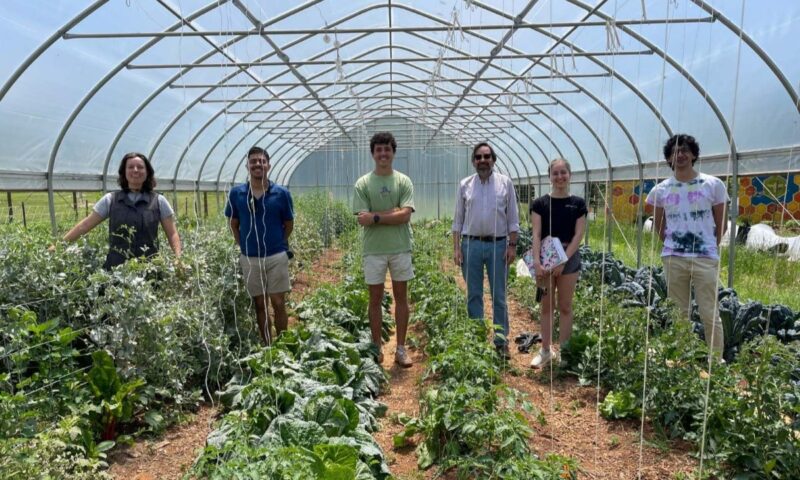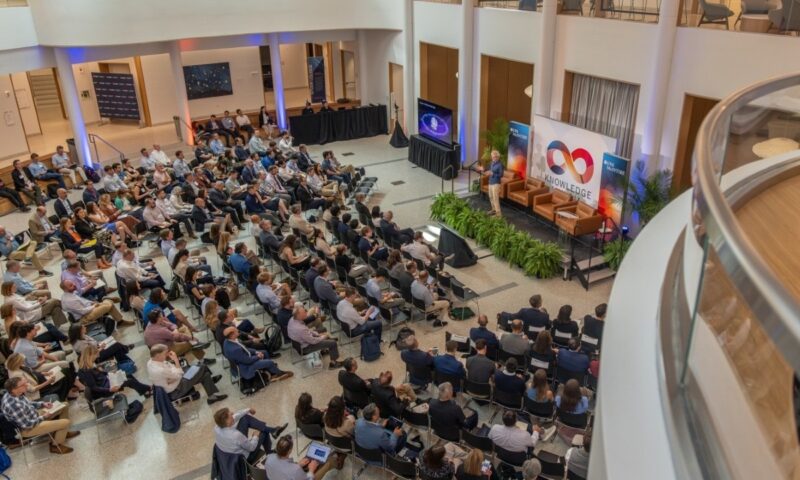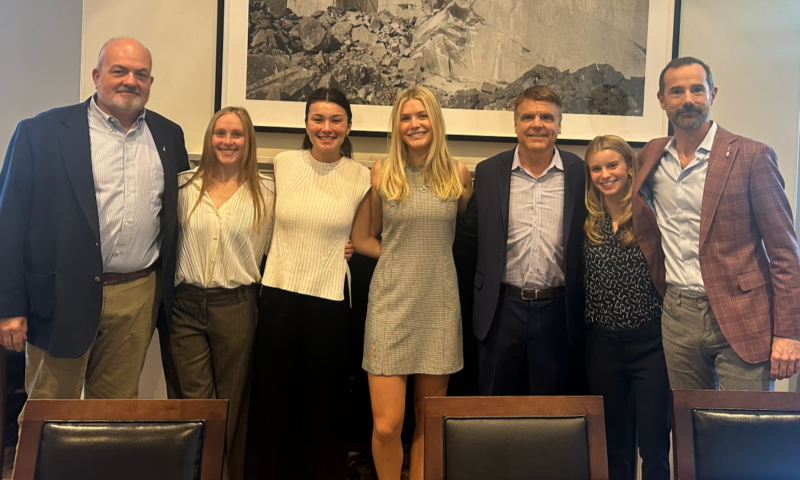Unprecedented change has come to Grounds and arrived across the entire globe. The coronavirus pandemic has swiftly caused everyone to reassess and create contingency plans to appropriately deal with the crisis.
Yet the ability to navigate the unexpected—especially shifting global forces—is integral to a McIntire education. As such, the ability to courageously face the current situation requires the very skills that McIntire instills in its students: extensive global perspectives; effective communications; a rich understanding of the market forces; and best practices in organizational behavior, leadership, and management.
For students of McIntire’s M.S. in Commerce Program, many of the aforementioned fluencies are solidified in the requisite Global Immersion Experience (GIE), an overseas course led by faculty. Or at least it normally is.
But these are not normal times. And as a result, the COVID-19 pandemic abruptly grounded the normally scheduled GIE as a result of the widespread precautionary edict that has directed everyone to just stay home.
So what’s a globally positioned, travel-oriented graduate program to do? In the same spirit as McIntire’s organizational transition to migrate all of its classes online, M.S. in Commerce faculty swiftly pivoted to ensure that—despite the halting of international travel—students receive a top-notch global business education.
The alternative plan follows three modules that feature five brand new online courses launching in the traditional GIE’s stead. Beginning in late April, all students will take the first module, which features a series of recorded engagements with guest speaker experts from around the world, including:
- Rudra Chaudhuri, Director, Carnegie India
- Marisa Drew (McIntire ’86), CEO of Impact Advisory and Finance, Credit Suisse
- Harry Harding, Professor and former Dean, UVA Frank Batten School of Leadership and Public Policy
- Chris Nassetta (McIntire ’84, UVA Parent ’17), President and CEO, Hilton
- Scott Price (GSA&S ’90, Darden ’90, UVA Parent ’17), Chief Strategy and Transformation Officer, UPS
- Juan Manuel Santos (UVA Parent ’17), former President, Colombia
- Carol Sawdye (McIntire ’85), Chief Operating Officer, PwC Network
Their conversations with faculty will delve into critical global topics and serve as the basis for faculty-moderated student discussion.
Then, in modules 2 and 3, students will enroll in two of five course options. According to Associate Dean for Global Affairs and Professor Peter Maillet, all of the five new course options speak to the faculty’s expertise in the respective subjects being explored, while also allowing for a purposeful examination of how the health and economic crisis is impacting those areas in nearly real time.
“While the coronavirus pandemic is first and foremost a human tragedy, it also provides teachable moments that have the power to transform student understanding,” he explains. “In ‘Foundations of Global Commerce,’ the prerequisite course for GIE, we begin each day with a student-led exercise, known as EGM, in which we discuss the major macro stories of the day and how those are impacting markets. Then, throughout the class, we talk about the possible long-term consequences of the pandemic, from shortening supply chains to the shift to online. What does this mean for supply chains? What does it mean for capital markets, the future of trade, and the future of immigration?”
After the first module, students will then take two additional thematic modules of their choosing based on the following options:
- “China Rising: Assets and Obstacles to becoming a Global Superpower,” taught by Professor Jim Burroughs: No society in history has experienced a more dramatic transformation in a shorter period than China. In the space of 40 years, China has gone from one of the most impoverished countries on earth to the world’s second largest economy. Its people, resources, and geostrategic location all suggest China has more room to rise. At the same time, many of the easiest reforms have taken place, and significant challenges remain, including the disposition of state-owned enterprises, the proper balance of a planned versus free market, and the protection of intellectual property. How China responds to these challenges, among others, will determine its fate as the world’s next global superpower, and is also the focus of this course.
- “Evolution and Future Relevance of the European Union,” taught by Professor Ira Harris: The importance of the UK’s recent departure from the EU can be easily misunderstood as an isolated single-nation choice. The decision process and broader implications are profound. This course will examine the evolution of the EU’s essential purpose and future. It will use a recently published scholarly book on the Union’s impact on global business standards relating to competition, digital commerce, health and safety, and environmental concerns.
- “The Global Financial System,” taught by Professor Peter Maillet: The global financial system is an integral component of the global economy, yet composed of individually unique subsystems at the regional and country levels. This course will compare and contrast the different financial systems of the United States, European Union, China, and India, seeking to understand not only important differences but how these systems work together to intermediate the global flow of capital. In addition, through daily discussion of financial markets students will improve their knowledge and understanding of the structures of global equity, fixed income, currency and commodity markets.
- “Latin American Competitiveness in the Age of Globalization,” taught by Professor Jeremy Marcel: Though Latin America enjoys massive reserves of crucial natural resources, the first two decades of the 21st century have brought inconsistent and uneven economic and social development, and have highlighted a disproportionate exposure to global decisions and policy. This course examines the cultural factors, political issues, and economic policies that shape the challenges that organizations currently face in this region. In particular, the course will emphasize differences across countries and their implications for global competitiveness.
- “Global Consumer Insights,” taught by Professor Trey Maxham: This research-oriented class blends relevant class discussions, market research, and analytics to explore dynamic global consumer insights that predict market performance. We will investigate how the minds, hearts, and behaviors of consumers relatively affect key consumer outcomes. The class is particularly relevant for students interested in understanding critical non-financial drivers of financial performance. The class will discuss consumer insights across multiple regions to better understand and appreciate how consumer attitudes and behaviors shape global economies.
While Maillet knows it’s an impossible task to replicate the travel aspect of GIE, he and his faculty colleagues have made sure the content is relevant to students, timely, and fully leveraging faculty expertise while ensuring that the new coursework supports the GIE mission: to expose students to business in the global context.
He also sees some upsides in the new approach. It offers the benefit of including diverse expert perspectives from around the world, giving a truly global viewpoint students wouldn’t otherwise have (as they normally focus on a single region), as well as the advantage of studying two additional regions or topics.
“They are still all thoroughly global classes. While we can’t replicate the GIE experience, we aren’t abandoning the point of GIE,” Maillet says. “We’re keeping that global philosophy as the centerpiece of what we’re doing.”



